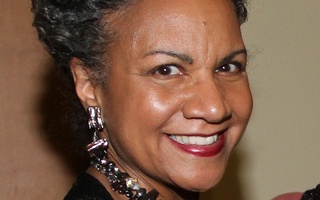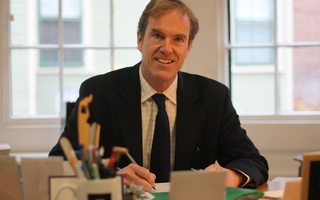MANCHESTER-BY-THE-SEA, Mass.--Since sometime before World War II, the Essex County Club, nestled here in the rolling hills of the Massachusetts North Shore, has annually played host to the Harvard 25th reunion's day-long outing of golf, tennis and symposia.
Throughout those years, Harvard developed a friendly relationship with the dub: Harvard got plush surroundings to wine and dine its alumni and Essex received a reliable source of annual revenue.
That relationship abruptly ended three years ago, when, after decades, Harvard moved its annual gathering to Southborough, Mass., and the relatively less exclusive St. Mark's School, which charges a yearly tuition of $19,150.
Club members and a town selectman in this seaside town say the Essex County Club has no Black members, but Harvard's decision to leave had little to do with the exclusiveness of the club or the University's policy of non-discrimination.
Instead, Harvard left because the club, under pressure from members who disliked the intrusion of outsiders, hiked its rental fee, and the reunion got a better deal elsewhere, according to some club members.
Still, some members express regret about Harvard's decision to leave Manchester for Southborough.
"I don't know why it ended," says George Cancer, a Boston attorney and club member. "I'm distressed that it has ended."
Cozy, long-term relationships like this one are the rule, not the exception, in the planning of Harvard reunions. When the University looks outside for help, it hires people it knows, and rarely, if ever, takes them off the reunion dole.
Although these contractual relationships simplify the complex task of managing one of the world's largest and most prestigious parties, they also can lead to inefficiency, prodigality and arrangements which may compromise University principle.
The Essex County Club, for example, left Harvard in a murky area. Club members say the reason they have no Blacks in the club is because none have ever wanted to join. They also say they have no written policy barring racial minorities from the club. Therefore, there's no discrimination, and no conflict with University policy. University officials seem unclear themselves about whether any of Harvard's reunion contracts violate school regulations. Michael J. Barone, director of internal auditing, says conflict-of-interest and bidding policies are set by each department in the University, and he was unsure what, if any such policies, applied to the reunions and the various departments involved with them. "Harvard would not have a formal University-wide policy on [bidding]," says Barone. "The University is so decentralized, each of the faculties and vice presidents may have different policies." Marion R. Briefer, who organizes the 25th reunion, says there are bidding procedures for everything her office does. Asked to state his specific policy on bidding, Vice President for Alumni Affairs and Development Fred L. Glimp '50 said his office employs bidding for the reunions when officials feel that prices charged by current vendors have gotten too steep. It's not clear if a bid was put out in the case of the Essex County Club. The business manager at St. Mark's school says he and Harvard-worked out a deal that was better than what the University got at Essex, and Briefer did not return two phone calls last week. Dumping the club, which enjoys an exalted place in Harvard lore because coach Percy Houghton quartered the football team there before the 1919 Yale game, seemed to eliminate a cozy relationship. Read more in NewsRecommended Articles















